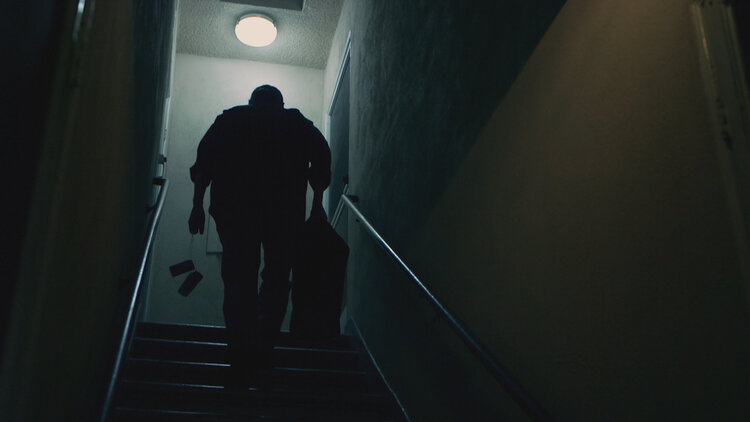Billy Mize Compelling
BY JENNIFER SELF The Bakersfield Californian jself@bakersfield.com
The temptation to liken the life of Billy Mize to one of the melancholy country songs he wrote is a potent one -- except that no one would ever write anything so damned sad.
Unthinkable family tragedies, one after another, medical setbacks and a stroke that prematurely ended his career offer a pretty compelling case that Mize just may be the biblical Job of country music.
Filmmaker Joe Saunders reports he's just signed a deal with a company called Cintic to distribute the movie. "It looks like we'll be distributed digitally via Film Buff (its sister company) who will put us on all digital platforms in early 2015," Saunders wrote in an email. "And they are out looking for TV opportunities, etc."
Saunders, who will be at the Fox screening, reports that though Billy Mize won't be present, his brother, Buddy Mize, who provides insightful commentary throughout the movie, will attend.
"It's got to be hell to be a singer and one day you've lost it all and you still know that," reflects Buddy Mize in a film about his brother. "You still have the mind and you know the singing, but it doesn't happen anymore."
How is it then that "Billy Mize and the Bakersfield Sound," a documentary made with obvious love by the performer's grandson, is anything but gloomy? Bittersweet, yes, but the emphasis is more on the sweet than the bitter.
The film, which had its Bakersfield premiere in September before a packed house and affectionate audience at Buck Owens' Crystal Palace, will be screened Friday at the Outside the Box Bakersfield Film Festival.
Filmmaker Joe Saunders conducted more than a dozen interviews with music historians and Mize's friends, family and fans, including legends of the genre like Willie Nelson, Ray Price and Merle Haggard, the biggest star to come out of Bakersfield, who owes his first television appearance -- a snippet of which appears in the film -- to Mize.
Haggard, especially, is effective in getting across the central theme of this character study: Billy Mize might have been a superstar if not for his decision to forgo the all-consuming pursuit of fame for a stable home life with his family.
"Billy Mize is this incredibly talented, multifaceted, good-looking guy that probably should have been a star, a big star," singer/songwriter Dave Alvin says in the film.
But Mize, 85, did manage to stand out in Bakersfield, and that was no small accomplishment. It seems impossible that the southern valley of the 1950s and '60s, full of cotton pickers by day/guitar pickers by night, should have been a capital of country music. But as the captivating images and performance clips in the film make plain, the town was jumping -- There's Bill Woods at the Blackboard! It's that kid Buck Owens at the Lucky Spot!
It's in these moments that the film soars, reminding fans who didn't realize they needed reminding that this vital music does not belong behind museum glass, spoken about in hushed, reverent tones. The music is as fresh and bracing as it was 50 years ago, a loud and vital alternative to the snoozefest that was -- and is -- Nashville.
These handsome mischief-makers, with their pompadours, wicked grins and talent to spare were every bit as exciting and dangerous as their rock contemporaries. And Billy Mize? He was the most Elvis-like of them all.
"Billy was a handsome kind of cat," Ray Price observes in the film. "I'm sure he didn't have any problems with women. In fact, that probably was his problem."
One woman he couldn't get enough of was wife Martha, who caught his eye on the school bus when they were children. Each appears to be the other's biggest admirer in spite of their divorce decades ago. In fact, some of the film's best insights come from Mize's ex, not to mention most of the laughs -- and there are many, courtesy of wits like Red Simpson, Cliff Crofford and Mize himself.
An exchange between the couple that drew hoots at the Palace came after a story Buddy Mize tells about his brother breaking into music at the Lucky Spot, though he was still too young to work at a bar. The venue got around the problem by hiring Buddy and Billy's mother as a bouncer:
Billy: "My mother said don't drink."
Interviewer: "Did you?"
Billy and Martha: "No, no."
Martha: (waiting a beat) "I did."
Martha also offers the perfect scene-setter for how rough and tumble those old honky-tonks could get:
"The very first night I was there, one of the band members' wives put a customer's head down the toilet in the ladies' room and I was horrified. Absolutely horrified. Because I thought we were just going to go to the ladies' room like little ladies."
Yet even in the barroom bedlam and later, when he was host of a succession of Bakersfield and Los Angeles television programs, Mize was able to maintain a depth and gentleness that set him apart.
"I didn't talk to anybody about Billy that didn't like him. Not one," Bakersfield Sound author Gerald Haslam says in the film.
"I talked to a lot of people that didn't like Buck. But everybody liked Billy."
Much of that admiration can be traced to the grace with which Mize has handled the tragedies that have befallen him, paticularly the death of both of his sons, and his health problems. The film starts and ends with Mize's struggle to recover his speech, his frustration palpable.
"I know what I want to say, but I can't talk."
But this is not a film about the indignities and injustices of old age. Mize's resilience is the takeaway, and nowhere is his strength more evident than in the film's closing moments -- which won't be revealed here. It will get you dancing in your seat even as it pierces your heart.

